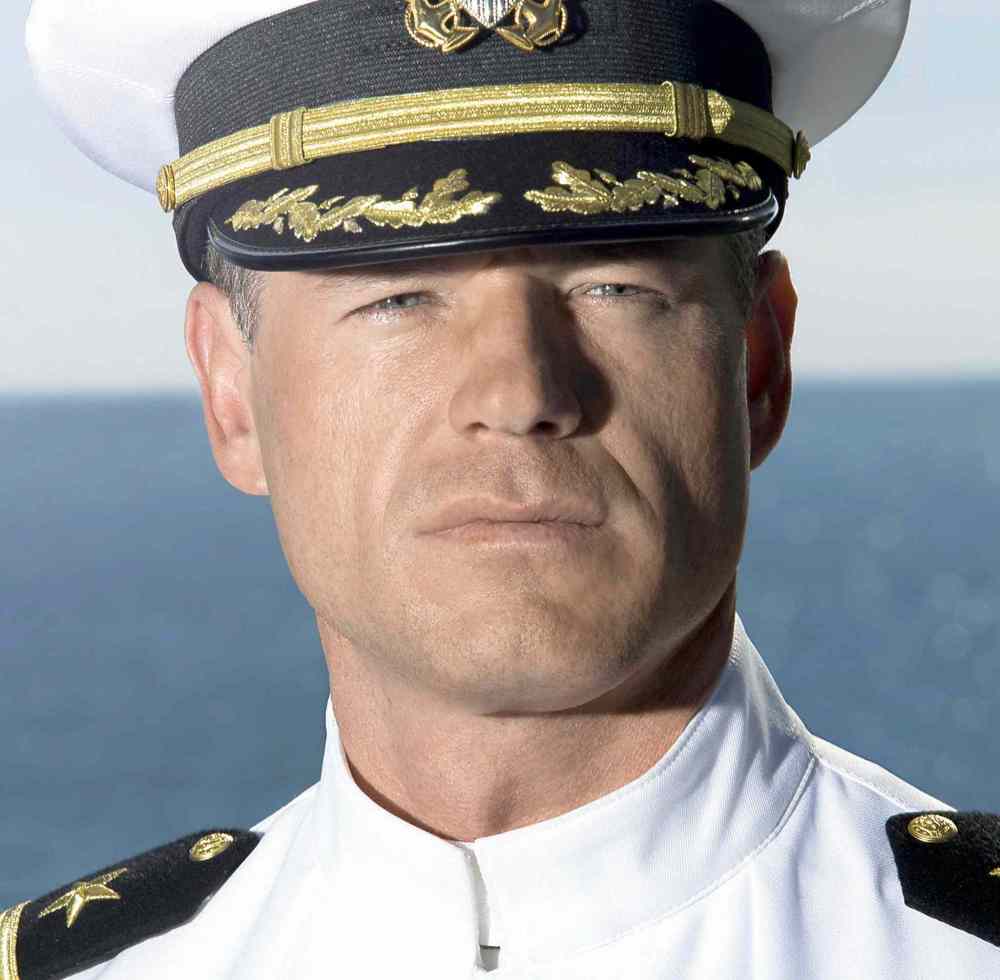NO summer vacation for network TV
What was once the off-season now features BIG STARS, BUDGETS
Advertisement
Read this article for free:
or
Already have an account? Log in here »
To continue reading, please subscribe:
Monthly Digital Subscription
$1 per week for 24 weeks*
- Enjoy unlimited reading on winnipegfreepress.com
- Read the E-Edition, our digital replica newspaper
- Access News Break, our award-winning app
- Play interactive puzzles
*Billed as $4.00 plus GST every four weeks. After 24 weeks, price increases to the regular rate of $19.95 plus GST every four weeks. Offer available to new and qualified returning subscribers only. Cancel any time.
Monthly Digital Subscription
$4.99/week*
- Enjoy unlimited reading on winnipegfreepress.com
- Read the E-Edition, our digital replica newspaper
- Access News Break, our award-winning app
- Play interactive puzzles
*Billed as $19.95 plus GST every four weeks. Cancel any time.
To continue reading, please subscribe:
Add Free Press access to your Brandon Sun subscription for only an additional
$1 for the first 4 weeks*
*Your next subscription payment will increase by $1.00 and you will be charged $16.99 plus GST for four weeks. After four weeks, your payment will increase to $23.99 plus GST every four weeks.
Read unlimited articles for free today:
or
Already have an account? Log in here »
Hey there, time traveller!
This article was published 15/06/2014 (4274 days ago), so information in it may no longer be current.
LOS ANGELES — The summer blockbusters are coming. And to see them, you don’t even need to get off your sofa.
The networks are pouring unprecedented amounts of money — and some very creative deal-making — into getting A-list movie writer-producers and actors onto your flat-screen TV during the hot months.
On NBC, John Malkovich is starring as the pirate Blackbeard in Crossbones. CBS is launching a sci-fi drama, Extant, starring Oscar winner Halle Berry and produced by Steven Spielberg. And director Guillermo del Toro is bringing his vampire tale The Strain to FX with a US$9-million price tag for the pilot alone.

Summer used to be network television’s dead zone, stocked with repeats and cheap reality shows, and it was a place to bury cancelled series. That left an opening for the cable networks, which saw a chance to gain viewers without having to go up against the networks’ best new shows in the fall, using summer to launch hit programs such as Mad Men.
CBS fired back last summer with the miniseries Under the Dome, which did so much better than expected, the network is bringing it back this year with fresh episodes. That success, combined with increasing competition from Netflix, Amazon and other upstart content providers, has upended traditional notions of what constitutes a TV “season.”
“You can’t close down for the summer,” said NBC Entertainment president Jennifer Salke. “There’s opportunity year-round.”
All the TV sizzle, however, carries significant risks. Networks are shelling out big money for these summer dramas, with Fox’s summertime reboot of 24 with Kiefer Sutherland topping US$4 million per episode in total production costs, industry insiders say. Extant costs nearly that much. That matches the tab for the most expensive shows during the regular season.
At the same time, the cable networks are ramping up their own offerings to stay competitive. In addition to FX’s marquee summer project, TNT is rolling out the apocalyptic epic The Last Ship. The show’s executive producer is Michael Bay, best known for directing big-budget summer films including the Transformers series.
“Our goal is to make watching TNT be like going to a great summer movie,” Michael Wright, the programming chief of TNT’s parent company, Turner Networks, told media buyers earlier this month in New York. “Grab a bucket of popcorn, kick back and let us take you on a thrilling ride.”
In an interview, Bay said he had wanted to get involved in TV for a long time but had been “slow and cautious” about making his move.
“This particular idea was batted around quite a bit, and it was really cinematic,” he said of The Last Ship. “So I gave it my all.”
Cable networks have long realized, of course, summer offers a perfect opportunity to chase new viewers. HBO, for example, moved its vampire drama True Blood from fall to summer starting with Season 2 back in 2009. Viewing more than doubled, Nielsen says, and it became one of HBO’s top-performing shows. Its seventh and final season will air this summer.
Those kinds of opportunities existed for cable networks because for decades, broadcasters mostly ignored the summer. With longer days and summer vacation competing for viewers’ attention, the networks scheduled mostly repeats between Memorial Day and late September, when the new season started. Over the last decade, they found success with relatively inexpensive reality fare, such as America’s Got Talent, Big Brother and So You Think You Can Dance.

Much of the credit for the about-face goes to Under the Dome, adapted from a Stephen King thriller about townsfolk trapped under a giant transparent bubble. The show succeeded despite a number of traditional hindrances to attracting big audiences. In addition to the summer time slot, there were no high-profile stars, and it wasn’t a cop show or medical drama viewers would instantly recognize.
The series logged an average weekly viewership of nearly 14 million — an impressive figure that prompted CBS to order a second season to a program initially conceived for a single season. Dome’s next season rolls out June 30.
It was a clever financial deal that enabled CBS to greenlight the show in the first place. Dome was modelled after formulas cable networks had exploited: limited runs (typically just 10 or 12 episodes per season), an intriguing concept and the type of marketing drumbeat usually reserved for grander events.
“Cable did teach us some lessons: that people are interested in the kind of bigger show that broadcast dramas can do well,” said Neal Baer, a former writer-producer for ER and Law & Order: Special Victims Unit who’s now behind Under the Dome.
In an unusual arrangement brokered by talent agency WME, CBS hedged its risks by sharing costs with Amazon — exactly the sort of new-media company that usually gives network executives panic attacks because it threatens to encroach on their existing business.
Each episode costs about US$3 million to produce, with CBS essentially splitting about half the bill with Amazon. Foreign sales roughly pay for the other half. In exchange, Amazon won the right to deliver Under the Dome to viewers on its website within days of each episode’s broadcast, far earlier than the weeks- or months-long delay that would typically exist.
“It was a unique deal that others have copied,” NBC’s Salke said.
Broadcasters are hoping to hedge their bets by finding production partners to split the costs. NBC initially tapped Georgeville Television, an independent production company, to help finance Crossbones, although Georgeville later dropped out of the project. (NBC declined to comment.)
The series is a sort of Apocalypse Now meets Pirates of the Caribbean, with Malkovich as a deeply menacing 60-something Blackbeard (the real pirate is believed to have died in his 30s). The writer-producer is Neil Cross, who won acclaim for his work on the BBC’s Luther and Doctor Who.

Of course, TV is a cyclical business. Today’s reality-show breakthrough can easily turn into tomorrow’s also-ran. But the creators behind TV series are convinced something has changed. Viewers, they say, now demand — and expect — new content year-round.
To stand out among the thick cloud of summer entertainment options, the networks courted movie talent. That’s why CBS is putting a lot of promotional muscle behind Extant, with Berry as an astronaut whose life takes a sinister twist after she returns from space. She is one of the very few Oscar winners for lead actress to sign up for a TV series (Kathy Bates starred in NBC’s legal drama Harry’s Law, and Jessica Lange co-stars in FX’s American Horror Story).
Typically, film stars are wary of the minimum four-year commitment required for the traditional TV series. But Extant will air for just 13 episodes, giving it the kind of special-event feel in vogue for summer TV these days.
As Extant executive producer Greg Walker put it: “Summer’s the time we all go to see event movies.”
Now “that’s what people want to watch on their television, as opposed to the old fare of reality shows or repeats,” he said. “People don’t want that anymore.”
— Los Angeles Times


